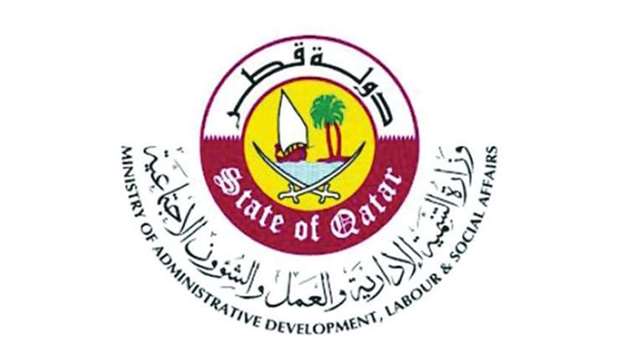The Ministry of Administrative Development, Labour and Social Affairs (MADLSA) announced the start of implementing the Minister of Administrative Development, Labour and Social Affairs Decision N.21 of 2021 amending some provisions of Resolution No. 8 of 2005 regarding regulating the conditions and procedures for licensing the recruitment of workers from abroad for the account of others.
According to the decision that comes into effect, office owners are bound by the instructions issued by the ministry and other concerned authorities for recruiting workers from abroad, the most important of which is to abide by the amendments that are received on labour legislation, regulations and policies in the country from which the labour is recruited, and to provide the worker before he is recruited with a copy of the signed data and conditions of work from the employer.
The employer is also obligated to issue a work contract for the worker before his arrival in the country according to the same conditions that the worker accepted to work on, in addition, to providing private housing and meals for the recruited workers.
The ministry explained that the decision included obligating the licensee to guarantee an additional six-month probationary period for the user, starting immediately after the end of the three-month preliminary testing period, bringing the total probation period to 9 months, including 15% of the total due amount, for each month the employee spent in the service of the employer during the additional probation period, with deduction of the value of government fees incurred by the office, in any of the following cases: The employee’s refusal to work, the employee quit, the employee's illness with a chronic disease, and the right of the employer shall be forfeited when the employer assaults the worker and violates any of the terms of the contract with the worker.
The competence of the Ministry of Administrative Development, Labour and Social Affairs, represented by the Employment Department, is to study special requests for recruiting workers from abroad, granting licenses to recruit workers from abroad for others, and settling disputes that arise between recruitment agencies and employers in accordance with the Labour Law and the decisions implementing it, and referring them to the judiciary if they cannot be settled amicably.
The employer is also obligated to issue a work contract for the worker before his arrival in the country according to the same conditions that the worker accepted to work on, in addition, to providing private housing and meals for the recruited workers.
The ministry explained that the decision included obligating the licensee to guarantee an additional six-month probationary period for the user, starting immediately after the end of the three-month preliminary testing period, bringing the total probation period to 9 months, including 15% of the total due amount, for each month the employee spent in the service of the employer during the additional probation period, with deduction of the value of government fees incurred by the office, in any of the following cases: The employee’s refusal to work, the employee quit, the employee's illness with a chronic disease, and the right of the employer shall be forfeited when the employer assaults the worker and violates any of the terms of the contract with the worker.
The competence of the Ministry of Administrative Development, Labour and Social Affairs, represented by the Employment Department, is to study special requests for recruiting workers from abroad, granting licenses to recruit workers from abroad for others, and settling disputes that arise between recruitment agencies and employers in accordance with the Labour Law and the decisions implementing it, and referring them to the judiciary if they cannot be settled amicably.

